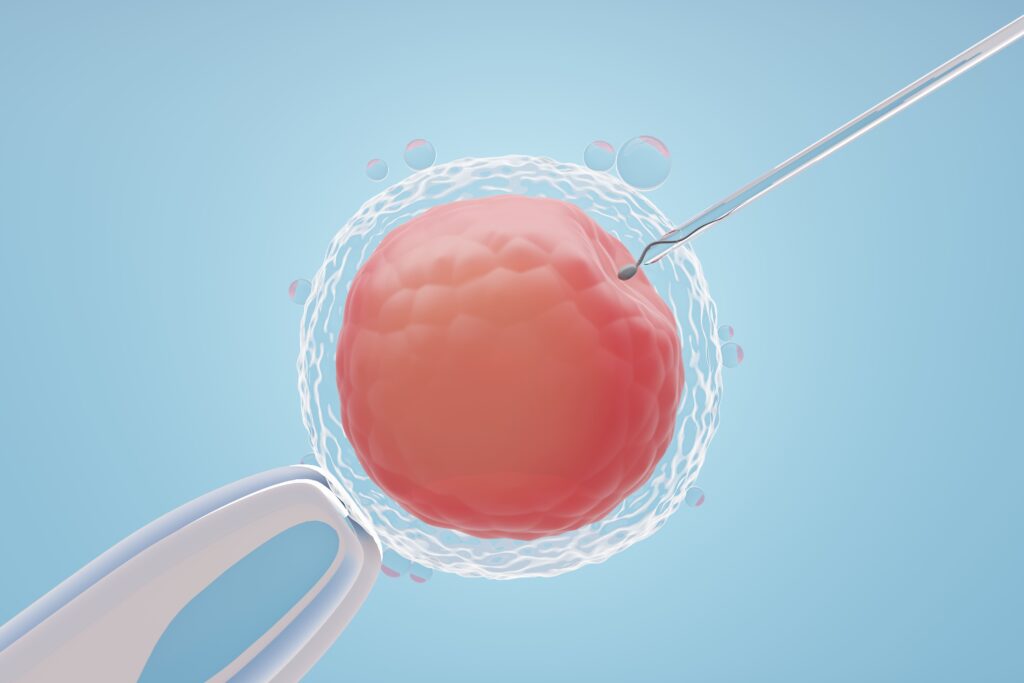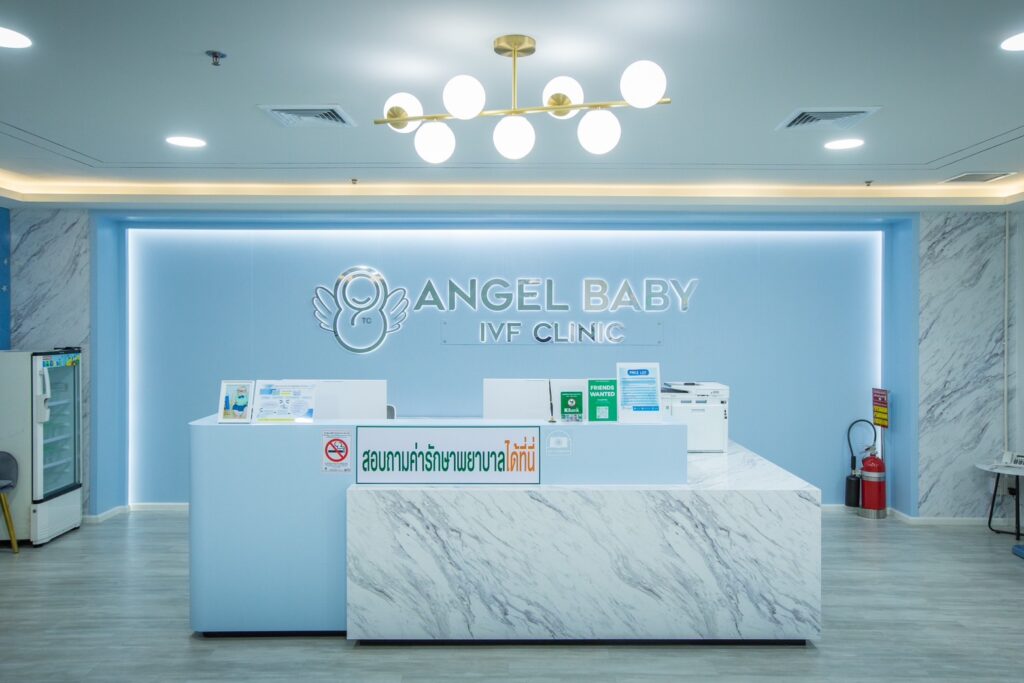What is PGS/PGT ?
PGT (Preimplantation Genetic Testing) is primarily used for chromosome screening in artificial reproduction and IVF procedures. It serves as an important diagnostic tool to identify chromosomal abnormalities in embryos.
By using PGT/PGS results to select normal embryos, we can reduce the number of embryos transferred, lower the risk of multiple pregnancies, and decrease miscarriage rates. Let’s explore preimplantation genetic screening in detail.
How many types of PGT (Preimplantation Genetic Testing) are there?
Common PGT (Preimplantation Genetic Testing) can be divided into three types: PGS (PGT-A), PGD (PGT-M), and PGT-SR, each with different advantages and applicable scenarios.
We’ve compiled the differences between these three preimplantation genetic testing methods to help you understand which approach might be most suitable for your specific situation.
What is PGS (PGT-A)?
PGS stands for Preimplantation Genetic Screening, though it’s now officially called PGT-A (Preimplantation Genetic Testing for Aneuploidies).
PGS/PGT-A checks if your embryos have the right number of chromosomes. Chromosomes carry the genetic blueprint for healthy development – you need exactly the right number for a healthy pregnancy. This test helps identify the embryos with the correct chromosome count before transfer.
PGS (PGT-A): 5 Key Benefits
PGS testing improves IVF success rates by identifying embryos with the correct number of chromosomes. By selecting only the healthiest embryos for transfer, this process significantly increases the chances of a successful pregnancy.
The main benefits of PGS (PGT-A) testing include:
- Screen for embryos with correct chromosome numbers
- Reduce the number of embryos transferred
- Increase pregnancy rates
- Reduce miscarriage rates
- Shorten the time to achieve pregnancy

Who Should Consider PGS (PGT-A)?
While PGS(PGT-A) testing can help couples trying to conceive have a higher chance of overcoming infertility, not all IVF procedures require PGS(PGT-A) testing. However, if you meet the following conditions, it’s generally recommended to discuss with your doctor whether PGS(PGT-A) testing is necessary:
- Women over 35 years of age
- Recurrent or recurrent miscarriage
- Repeated IVF treatment failures
- Known chromosomal carriers or chromosomal translocations
What is PGD (PGT-M)?
PGD(PGT-M) is a step in the IVF/ICSI process that helps reduce the risk of having children with genetic diseases. Previously called Preimplantation Genetic Diagnosis (PGD), this technology is specifically designed for couples who have a higher risk of passing on genetic diseases caused by single gene mutations to their children.
4 Benefits of PGD (PGT-M)
- Reduce the risk of genetic diseases
- Avoid recurrent miscarriage or fetal abnormalities
- Reduce long-term healthcare costs
- Provide psychological security
Who Needs PGD(PGT-M)?
- Have given birth to or previously carried a child with a genetic condition
- Personal or family history of specific genetic diseases
- Positive results from genetic carrier screening tests

PGT-A vs. PGT-M Complete Comparison
What about the PGT-SR mentioned above? We can start by introducing the umbrella term “Preimplantation Genetic Testing” – PGT (Preimplantation Genetic Testing). Based on testing purposes, it can be further subdivided into PGS, PGD, and PGT-SR. The differences between these three are as follows:
| Comparison of 3 PGT Types | Testing Purpose | Suitable Candidates | Detectable Conditions |
|---|---|---|---|
| PGS/PGT-A Preimplantation Genetic Screening | Test chromosome numbers | Women over 35 years of age recurrent miscarriage Family history of chromosomal abnormalities Repeated IVF failures |
Down syndrome Turner syndrome Klinefelter syndrome Edwards syndrome Patau syndrome |
| PGD/PGT-M Preimplantation Genetic Diagnosis | Test single gene defect diseases | Family history of genetic diseases Genetic disease concerns |
Hemophilia Thalassemia Ankylosing spondylitis Spinal muscular atrophy (SMA) Fragile X syndrome (FXS Achondroplasia (dwarfism) |
| PGT-SR Preimplantation Genetic Testing for Structural Rearrangements | Test chromosomal structural arrangements | Recurrent miscarriage Known chromosomal carriers | Robertsonian translocation Chromosomal translocations |
PGS (PGT-A): Frequently Asked Questions
Many couples have questions when considering PGS (PGT-A) testing. Below are the most frequently asked questions with professional answers. Through these FAQs, we hope to help you make the most suitable decision:
Q1: Is PGS (PGT-A) testing mandatory?
PGS (PGT-A) is not a required test in fertility treatments.
It’s typically suitable for women over 35 undergoing IVF procedures, those with multiple miscarriage experiences, repeated IVF failures, or those with chromosomal abnormalities.
If you want to improve pregnancy success rates and understand the costs associated with PGS (PGT-A), you can consider whether to proceed with PGT-A testing.
Q2: Can PGS (PGT-A) guarantee 100% healthy babies?
No, PGS (PGT-A) cannot guarantee 100% healthy babies.
Neither PGS nor PGD technology can detect all possible genetic abnormalities. While these tests significantly reduce the risk of chromosomal disorders, they cannot screen for every genetic condition.
This is why regular prenatal care and monitoring remain crucial throughout pregnancy to ensure the health of both mother and baby.
Q3: What should I consider when choosing a PGS(PGT-A) clinic?
When undergoing PGS(PGT-A), it’s important to choose a high-quality medical facility.
Consider the following factors:
- Strict quality control
- Experienced embryologists
- Medical-grade laboratory facilities
- Minimized transportation processes
Angel Baby Clinic has an international-standard laboratory and experienced embryologists with clinical expertise, currently achieving over 70% IVF success rates. Click here to learn more about our Preimplantation Genetic Testing (PGT) services to significantly improve your chances of successful conception.
Why Choose Angel Baby Clinic for PGS/PGT?
Thailand has become a leading destination for overseas couples seeking infertility treatment seeking advanced reproductive care. Here’s why more couples are choosing Angel Baby Clinic for their PGS/PGT journey:

Outstanding Success Rates
- 70.9% implantation rate for single PGS(PGT-A) normal embryo transfers (significantly higher than the international average of 58.8%)
- 99.8% signal rate for PGS(PGT-A) testing (exceeding international standards of 90-95%)
Advanced Technology & Equipment
- Individual embryo incubators with precise 37°C temperature control for optimal embryo development
- High-specification Nikon inverted microscopes enabling embryologists to perform PGT-A procedures with exceptional precision
- State-of-the-art laboratory facilities meeting international standards
Convenient Treatment Process
- Efficient treatment process – Complete your IVF journey with just 2-3 visits to Thailand
- Streamlined protocols Flexible scheduling for overseas couples seeking infertility treatment
Prime Location & Accessibility

- Located in Thailand’s Empire Tower, directly connected to the BTS Skytrain system
- Excellent transportation links with easy access to accommodation, dining, shopping, and entertainment
- Perfect combination of medical excellence and urban convenience
Comprehensive Support Services
- Multilingual support team fluent in English, Chinese, Thai, and other languages
- Dedicated international patient coordinators to guide you through every step
- Personalized care plans tailored to your specific needs and timeline
At Angel Baby Clinic, we combine cutting-edge technology with compassionate care to give you the best possible chance of achieving your dream of parenthood. Our international success rates and our experienced medical team highlight our dedication to your journey.